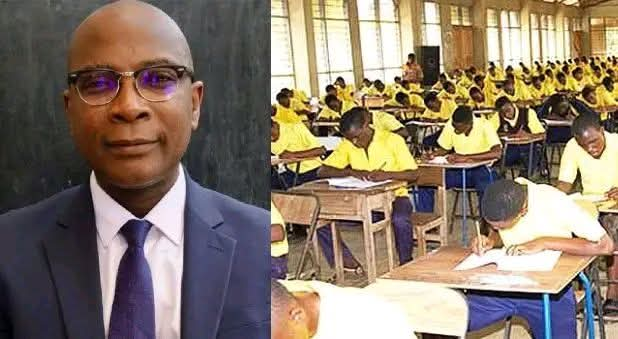By Hassan Osman Kargbo
In a bold move to uphold integrity in Sierra Leone’s education system, the Ministry of Basic and Senior Secondary Education (MBSSE) has announced a series of stringent new regulations aimed at curbing malpractice related to school admissions before and after key national examinations conducted by the West African Examinations Council (WAEC).
The newly introduced rules target corrupt practices that have marred the admission processes around the National Primary School Examination (NPSE), the Basic Education Certificate Examination (BECE), and the West African Senior School Certificate Examination (WASSCE). According to the Ministry, these measures are part of ongoing reforms to ensure that all students entering examination classes meet strict eligibility standards, thereby promoting fairness and accountability.
A central aspect of the new directive is the prohibition against admitting unqualified students into WAEC exam classes. School administrators are now barred from enrolling students into examination classes unless they are officially registered in the school, have a documented history of regular attendance, and possess complete continuous assessment records, meaning that last-minute transfers and irregular candidates will no longer be tolerated.
The ministry has also issued a stern warning to parents and guardians. They are advised not to attempt to register children who are either underage or not academically eligible to sit national exams. Specifically, students in Class 4 or 5 attempting to take the NPSE, those in JSS1 or JSS2 aiming for the BECE, and those in SSS1 or SSS2 preparing for the WASSCE will face consequences if they do not meet the criteria.
Violations of these rules may result in serious penalties, including the cancellation of students’ examination results and suspension of offending schools from participating in future WAEC examinations. In more severe cases, the Ministry says it will refer schools and individuals involved in fraudulent admissions to the Anti-Corruption Commission (ACC) for investigation and potential legal action.
The MBSSE emphasized that these reforms are essential to restoring credibility in the school system and ensuring that students advance based on merit rather than manipulation. “Integrity in the examination process begins with credible admissions,” a Ministry spokesperson stated. “We are determined to stop backdoor entries that compromise the system and disadvantage deserving students.”
As part of the reform process, the Ministry is encouraging schools to begin preparations for student placements into JSS1 and SSS1 classes well before the new academic year begins. Schools are required to start planning for new admissions no later than 14 days after the conclusion of the academic calendar.
The ministry has further instructed school authorities to convene internal review meetings to assess the number of repeaters, establish maximum class sizes, and finalize enrolment numbers for the upcoming school year. In an effort to maintain academic standards and reduce classroom congestion, the MBSSE strongly discourages class repetition rates above 2.5%.
These latest policy changes reflect the ministry’s commitment to transparency, quality, and discipline in the education system. With the 2025–2026 academic year approaching, school heads, parents, and education stakeholders are being called upon to support and enforce these measures to foster a more credible and equitable academic environment for all learners across Sierra Leone.










